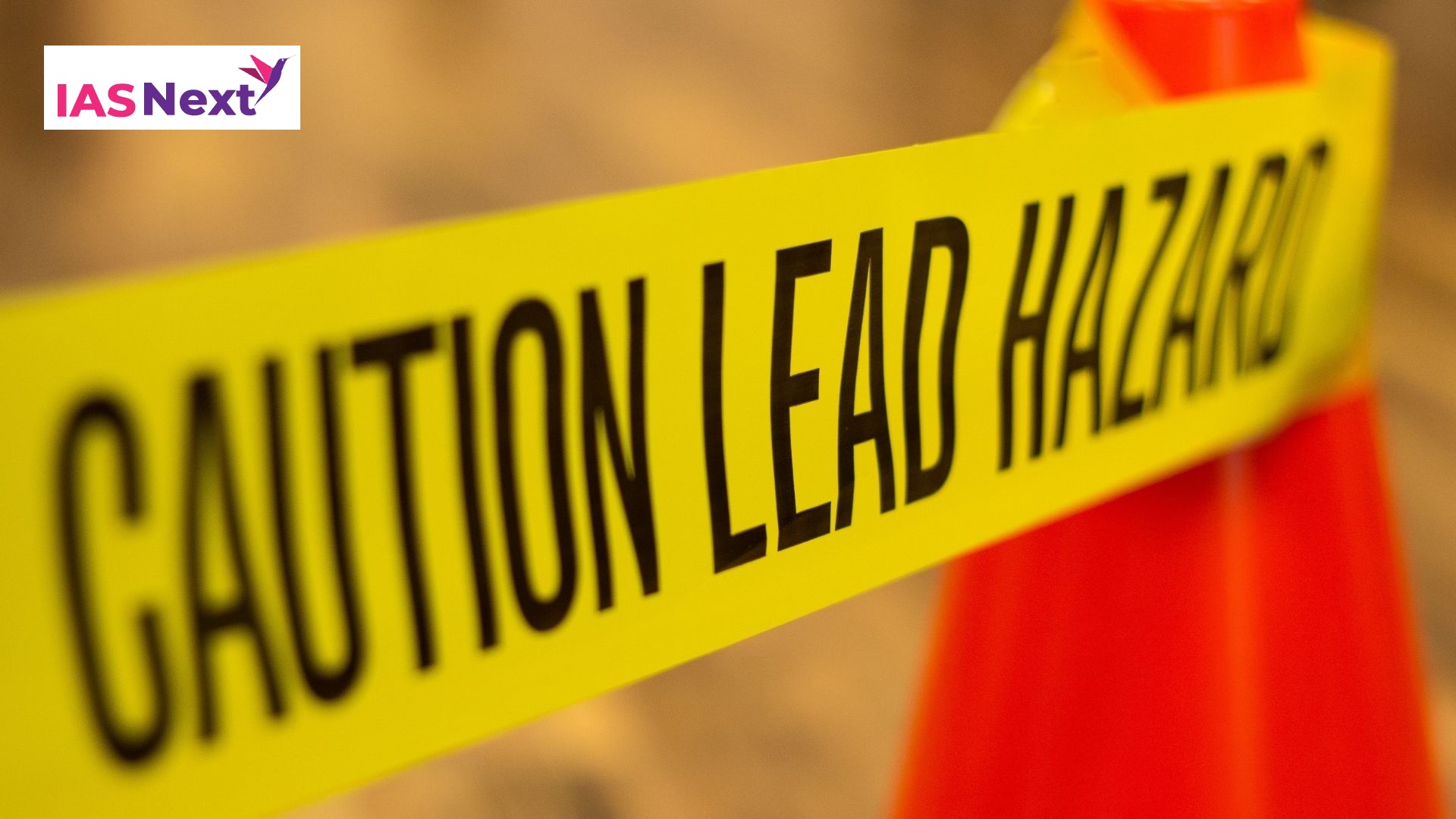CURRENT AFFAIRS
Get the most updated and recent current affair content on Padhaikaro.com
What is Lead poisoning?
- IAS NEXT, Lucknow
- 28, Mar 2022

Reference News:-
Recently, high levels of lead were found in the blood of thousands of children living around the Kabwe mine in Zambia.
How lead affects children?
- Lead is a potent neurotoxin that causes irreparable harm to children’s brains.
- It is particularly destructive to babies and children under the age of 5 as it damages their brain before they have had the opportunity to fully develop, causing them lifelong neurological, cognitive and physical impairment.
- Childhood lead exposure has also been linked to mental health and behavioural problems and an increase in crime and violence.
- Older children suffer severe consequences, including increased risk of kidney damage and cardiovascular diseases in later life.
How it costs countries?
Childhood lead exposure is estimated to cost lower- and middle-income countries almost USD $1 trillion due to lost economic potential of these children over their lifetime.
Factors contributing to lead poisoning:
- Informal and substandard recycling of lead-acid batteries.
- Increase in vehicle ownership, combined with the lack of vehicle battery recycling regulation and infrastructure.
- Workers in dangerous and often illegal recycling operations break open battery cases, spill acid and lead dust in the soil.
- They also smelt the recovered lead in crude, open-air furnaces that emit toxic fumes poisoning the surrounding community.
Need of the hour:
A coordinated and concerted approach across the following areas:
- Proper Monitoring and reporting.
- Prevention and control measures.
- Management, treatment and remediation.
- Public awareness and behaviour change.
- Legislation and policy.
- Global and regional action.
Conclusion:
It is clear from evidence compiled that lead poisoning is a much greater threat to the health of children than previously understood. Although much more research needs to be conducted, enough data have recently emerged for decisive action to begin – and it must begin now.